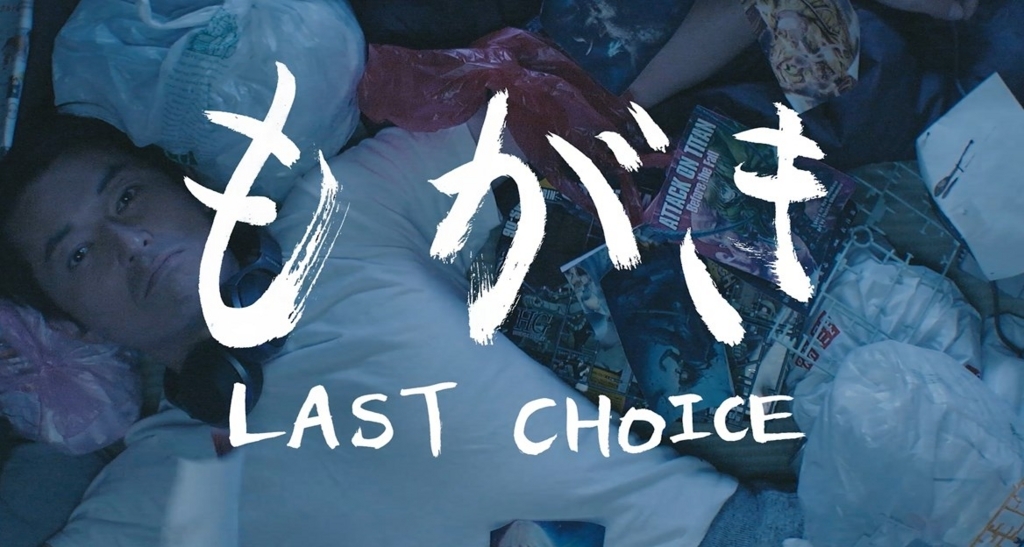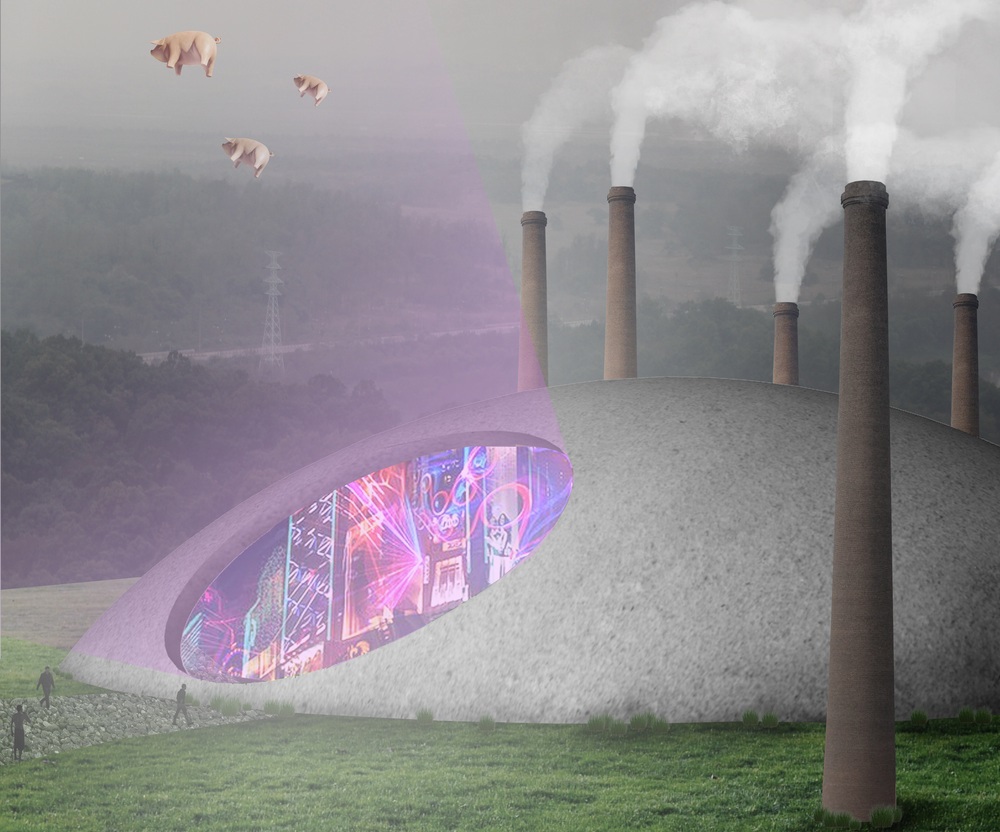
Written by Lu Te-Hsing & Vosot Ikeida
<Profiles>
Lu Te-Hsing:Originated from Taiwan, he is currently a post-graduation student at Southern California Institute of Architecture, dedicating to filmmaking in Los Angeles, especially "Last Choice / Mogaki" for now. Working span many fields, including publications, films, space design, event planning and art exhibitions.
Lu Te-Hsing Homepage:https://lutehsing.com/
Vosot Ikeida :Originated from Japan. Hikikomori. His memoir as a hikikomori for over 30 years can be read in another series "The Odyssey of a Hikikomori".
…Continued from Round 4
Hikikomori and Psychiatry

Lu Te-Hsing About my definition of hikikomori. To me, it’s more like a symptom. It comes along with depression, OCD or phobias. The biggest difference between ordinary people and this kind of symptom is only working or not working. For example if you are staying at your place, and you can still work, you might be recognized as a freelancer who can still go out and go to exercise. But the most fundamental thing is that you can’t or resist to fit into society. Therefore you are not working in an office. A society might say you are not productive.
Do you think this kind of definition applies to hikikomori?
Do you think there is better explanation to my understanding?
Last Choice (2018) Trailer from 盧德昕 on Vimeo.

Vosot Ikeida I think your idea of the definition about hikikomori is contributing a great step to the comprehension of the hikikomori. However, we must keep in mind that "hikikomori" is the way to call the condition of how he or she is, not the name of the disease to diagnose. If we connect "hikikomori" to symptoms more directly, it may be misunderstood by the ordinary people that "hikikomori" is a diagnosis name.
This is one of the problems that has been in the field of hikikomori-related since a long time ago. The reason why it is dangerous to consider "hikikomori" as a diagnosis is that people would start to think that "hikikomori" can be solved by psychiatric care. In fact, there have been several cases that the child who was in the condition of hikikomori was forced to be put in the mental hospital by the parents who wanted the "solution" of hikikomori. It was nothing other than the violation of human rights from the view of hikikomori.
Certainly, a significant proportion of hikikomori in Japan takes some psychiatric care. But not all of us. That is important. And, the people who are not hikikomoris also take psychiatric care. For example, a considerable part of the hikikomoris belongs to the poor class, but we can not generalize that "a hikikomori is poor", because there is some rich hikikomori. In the same way, we should be careful to distinguish between the tendency and identification.
If we define that "hikikomori" is accompanied by symptoms, it will be a psychiatrist who decides whether a person is a hikikomori or not. I think that it is dangerous to give such a powerful right to psychiatrists, as a human who suffered a lot from mental health care. Because I know the arrogance of psychiatry. A psychiatrist has been becoming a shaman in the modern times. Some of them decide many things without certain proofs, and sometimes they began speaking out for politics.
So, you may think our discussion goes back to the beginning, but as I said earlier, I think a hikikomori is someone who identifies themselves as hikikomoris. It is kind of a tautology, so it might not become a definition, but I eager to adopt this idea. As you said, I might not call myself hikikomori. For example, I go out from my house and I go to exercise at night. I am jobless but I might not be the “hikikomori”. And I am writing articles for medias. So you can say in many other ways. But personally, I choose to identify myself as a hikikomori. Now hikikomori has a weaker social status. We are discriminated, despised, looking down upon, then I would rather take that side. I am the one. I think this way of thinking might be relating to my upbringing of being abused by my mother.

Like a Religious Controversy
Lu I see. So you think that definition actually differs from person to person.
Vosot I think so. I think it’s very difficult to decide a common definition. That’s the controversy that has been repeating for many years among us hikikomori society.
It’s like a religious controversy. Everybody knows it is too touchy, so we don’t step into it so easily.
If we started to talk about definition of a hikikomori, then people will start saying,”No, you are not a hikikomori,” “he is faking himself” or “he is not real.” Then it is most unproductive and it become chaotics. Then it’s just a battlefield. So we know that is the touchiest question to step into so we don’t say that.
Lu Yes, it will become a competition of a person is qualified or not.
Vosot A competition and also discrimination. “He can comes out of his room twice a week, but I can only do once. So I am more qualified to be a hikikomori than he is.” This kind of silly comparison. You said earlier, you wonder if there will be a day when hikikomoris are not discriminated by the society. If hikikomoris started to discriminate each other, it would be worse.
Everybody Lives One's Optimal Life
Lu If you have a chance to speak to the world as a hikikomori, what would you say?
Vosot Well, I am writing articles in my poor English and poor French, so I would like to publish to the world. That’s why I am answering to your questions too. If you told me well in advanced, I wouldn’t hesitate to be filmed visually as well.
Lu If you have a chance to talk to other hikikomoris, as a tojisha, is there any simple words or sentences that you would like to say that deliver your manifesto or ideology?
Vosot I think everybody is adopting one’s way of being from many choices consciously or subconsciously. In other terms, everybody is living one’s optimal life by taking all the conditions given, with or without knowing.
Earlier I said, I did not become a hikikomori with my conviction, and I didn’t aim to be the one. It means I didn’t make any conscious decision to become a hikikomori but my subconsciousness knew me better than my consciousness and it led me to what I am now, and I am satisfied with my presence now. Knowing the social status of hikikomori is unduly, I am getting more forward to adopt the identity for myself.
This is too much to express in just the one verb “to choose”. Did I choose to become a hikikomori? The answer is “Yes and no”. And this is not a contradiction.
So if you are a hikikomori today, maybe that is the best way for you to be in this world. So, including myself, we need to be more confident at ourselves who have adopted to be a hikikomori. That’s the starting point, even if you aim to get out of being a hikikomori someday.
...To the Japanese Version of this article
...To the Mandarin Version of this article
